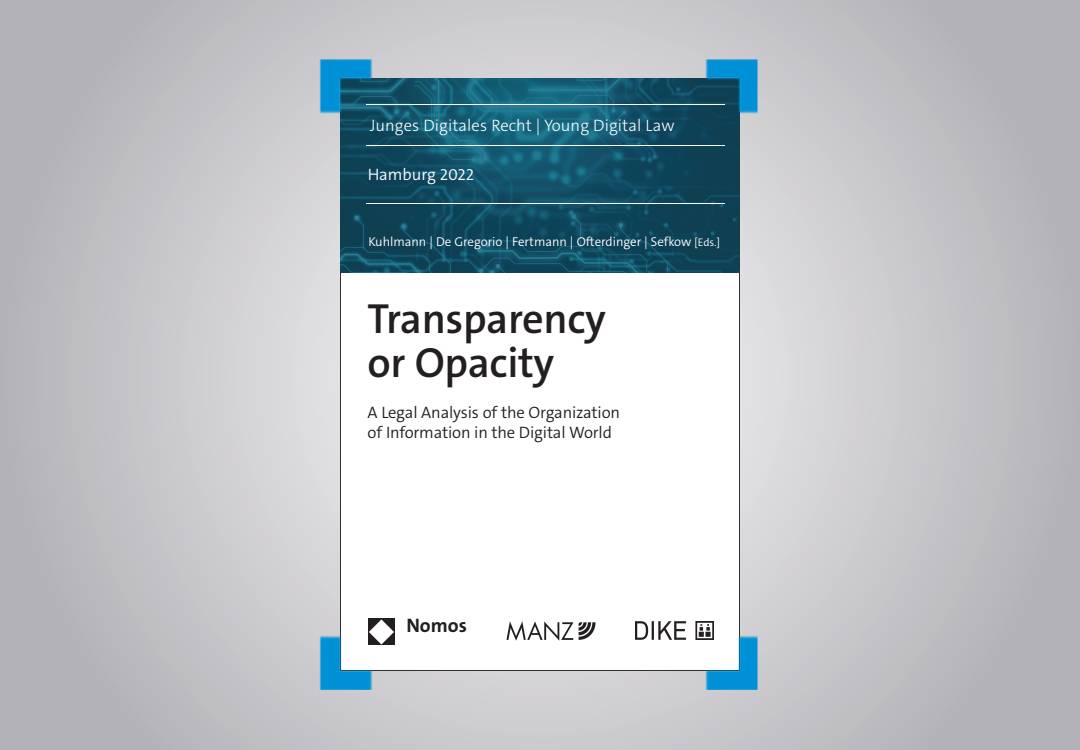In his contribution to the anthology "Transparency or Opacity",
Dr Tobias Mast looks at the advantages and disadvantages of automated decision-making from the perspective of the sociology of law. The contribution and the entire anthology are available as an open access volume in the eLibrary of the Nomos-Verlag.
Abstract
The extent to which the production of a decision is reflected in its representation has been a matter of dispute in legal scholarship for nearly 100 years. At the same time, insights from the sociology of law have been giving empirical impetus to the realist-pessimist faction for the past 50 years. However, there are many things in the minds of the judiciary and the administration that are different from what was assumed when the hymns of praise were written about the functionalities of their justifications and their constitutional ties, which could suggest a reassessment of legitimacy. This article does not set this as its main goal, but would like to use the objections to an idealistic, purely legally guided understanding of justification as a vehicle for pointing out the advantages and disadvantages of automated decision-making justifications.
Ent- und Redifferenzierung von Entscheidungsherstellung und -darstellung im Digitalen – Zum Wesensunterschied menschlicher und maschineller Entscheidungsbegründung aus rechtssoziologischer Perspektive [De- and Redifferentiation of Decision-Making and Representation in the Digital - On the Essential Difference between Human and Machine Decision-Making Reasoning from a Sociological Legal Perspective], in: Simone Kuhlmann/Fabrizio De Gregorio/Martin Fertmann/ Hannah Ofterdinger/Anton Sefkow (eds.), Transparency or Opacity, Baden-Baden 2023, pp. 141-164 https://doi.org/10.5771/9783748936060-141


